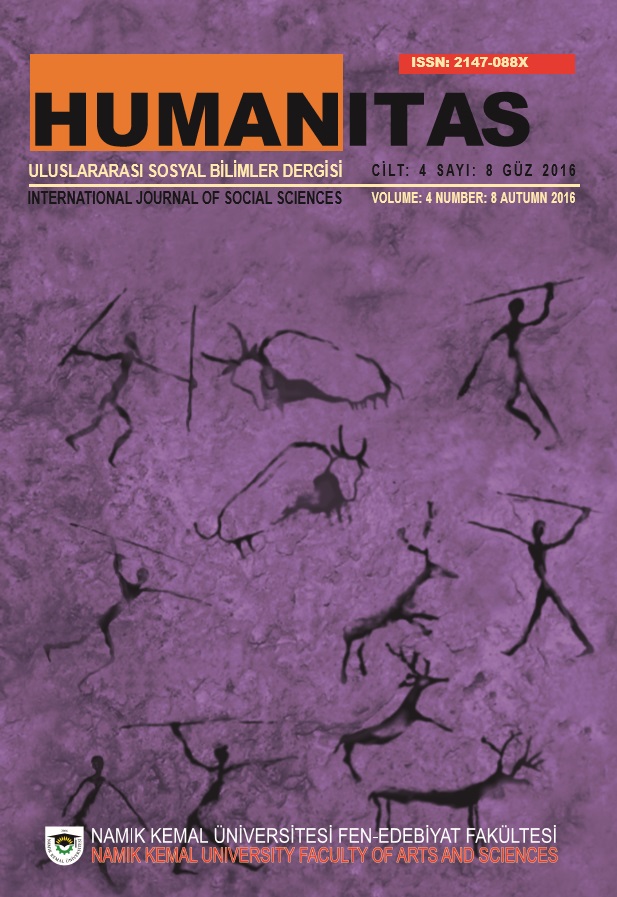DÜŞSEL ORTAÇAĞ’DA AŞKIN KANUNU: BİR SARAY EDEBİYATI OKUMA KILAVUZU OLARAK ANDRE LE CHAPELAIN’İN AŞKA DAİR ADLI YAPITI
THE CODE OF LOVE IN THE FABULOUS MIDDLE AGES: ANDRE LE CHAPELAIN’S ON LOVE AS A GUIDE FOR READING LITERATURE OF THE COURT
Author(s): Engin BezciSubject(s): Studies of Literature, French Literature, Theory of Literature
Published by: Namık Kemal Üniversitesi Fen-Edebiyat Fakültesi
Keywords: Medieval French literature; Courtly Love; André le Chapelain; Code of love
Summary/Abstract: De amore (About Love) written by André le Chapelain at the end of the 12th Century is one of the most important theoretical works of Court Literature (Littérature courtoise) that deeply influenced the French Literature between the 11th and 13th centuries. This work, telling us a lot about the affairs in the Palace, the contemporary understanding of love and the place of women in literature, is also a guide to Court Literature as a whole. Recommendations made for youths who want to be love knights in the 5th Chapter of Book I and “The Code of Love” of 31 articles from the 8th Chapter of Book II in particular, not only summarize the essence of courtly love, but also make one of the founding texts of the idea of love in the Western Literature. In that context, it only makes sense that Préciosité, which employs women as masters, was formed through similar rules and “codes” and that Stendhal quoted this medieval text in his book on love bearing the same title as the work of André le Chapelain. This article aims to discuss the fundamental characteristics of the Medieval Court Literature by interpreting some articles of the famous Code of Love” in line with some works having an impact on the era.
Journal: Humanitas - Uluslararası Sosyal Bilimler Dergisi
- Issue Year: 4/2016
- Issue No: 08
- Page Range: 1-14
- Page Count: 14
- Language: Turkish

